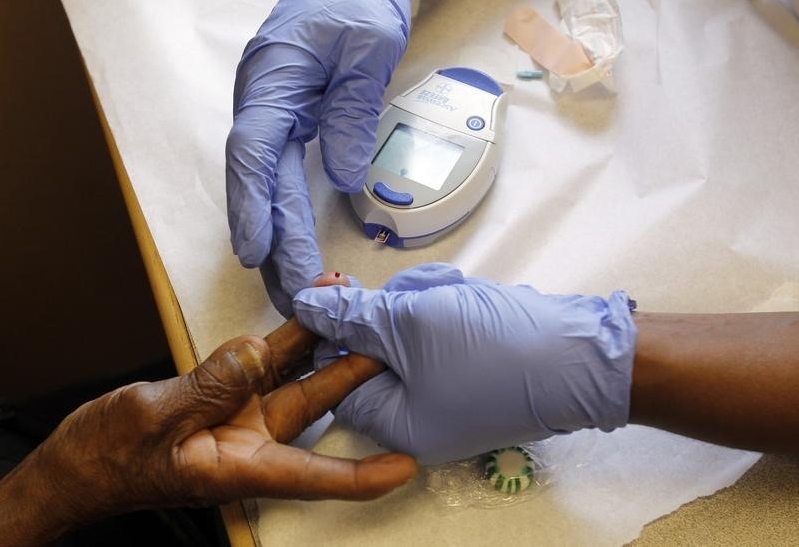
Almost half of 45-year-olds will develop so-called prediabetes, an elevated blood sugar level that often precedes diabetes, according to a large study from The Netherlands using population estimates.
Prediabetes, sometimes called impaired glucose metabolism, has no clear symptoms, but people with higher than normal blood sugar based on a blood test should be tested for diabetes every one or two years, according to the American Diabetes Association.
"We have known this from previous studies - but what this study adds is a method of communicating risk in a better way - a person's lifetime risk of developing diabetes," said Dr. Kamlesh Khunti of Leicester General Hospital in the U.K., who coauthored an editorial accompanying the new results.
One in three healthy 45-year-olds will develop diabetes in his or her lifetime, Khunti said.
Researchers from Erasmus University Medical Center in Rotterdam and the Harvard School of Public Health in Boston used long-term data on about 10,000 adults in The Netherlands, including medical records, hospital discharge letters, pharmacy dispensing data and fasting blood sugar measurements.
They followed people for about 15 years, categorizing their blood sugar levels according to World Health Organization standards. Blood sugar levels of 6 millimoles/per liter (108 milligrams per deciliter) or less are considered normal or healthy. Levels above 6mmol/L and below 7mmol/L (108-128 mg/dl) are considered elevated or prediabetic, and levels of 7mmol/L or greater are diabetes.
Over about 15 years, a total of 1,148 people developed elevated blood sugar levels, 828 developed diabetes and 237 started taking insulin to control their diabetes.
The study team translated these results into population risk levels at age 45, and found that about half of people would develop prediabetic blood sugar levels before their death, 30 percent would develop full blown diabetes and nine percent would start taking insulin.
About three-quarters of those with elevated blood sugar at age 45 would go on to develop diabetes, and half of those who already had diabetes would start taking insulin, they report in The Lancet Diabetes and Endocrinology.
Higher body mass index or waist circumference increased these risks further.
These results were similar to those found in other studies, Khunti told Reuters Health by email.
"However, some studies in black and minority ethnic populations have higher rates of diabetes," he said.
Although elevated blood sugar is common, estimates of how many people will develop it in their lifetimes had not been previously published, the study authors note. Based on these results, half of the population with normal blood sugar will develop prediabetic levels and may qualify for preventive lifestyle changes or medications to reduce that risk.
All people should maintain healthy diet and exercise patterns to reduce their diabetes risk, Khunti said.
"People should know their risk and if they are at higher risk, then they should have a more intensive method of reducing future diabetes risk," he said.







